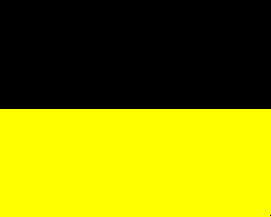


A Stint in Serbia
Forgách was ambassador to Serbia through the difficult time of 1908-1909, when Austria-Hungary annexed Bosnia-Herzegovina and Serbia responded with a storm of protest not only to Ambassador Forgách but also to Russia's Foreign Minister, Alexander Izvolsky. Thanks to a cunning but dangerous ploy by Imperial Foreign Minister Aloys Lexa von Aehrenthal, the Russians forced the Serbians to accept the annexation, and Forgách was prepared to evacuate Belgrade at a moment's notice in winter 1909 as the threat of war loomed heavily over the Serbian capital.
Forgách was a good friend of Leopold von Berchtold from a young age, and it was little wonder that he was appointed to be Undersecretary for Foreign Affairs when Berchtold rose to the position of Imperial Foreign Minister in 1912. Forgách effectively administered all day-to-day affairs that passed through the doors and telegraph wires into the Ballplatz.
As Berchtold had been at the centre of the Bosnian Affair, closely advising Aehrenthal and even lending his manor at Buchlau for the secret talks with Izvolsky, so Forgách was Berchtold's closest advisor and confidant during the July Crisis when the Ballplatz plotted to bring down Serbia once and for all.
With the fall of Berchtold in January 1915, Forgách was also out as István von Burián took charge and introduced his people.
Trying to Make Something out of the Ukraine
Forgách's biggest career move during the war was in 1918. He was dispatched to Kiev to be the Empire's representative to Hetman Peter Skoropadsky, the leader of the Ukraine. Forgách's dealings with the Hetman was a matter of desperation, since the Empire was starving and the Peace Treaty of Brest-Litovsk was supposed to deliver a million tons of grain, the so-called "Bread Peace" of March 1918. But Kiev had no grain to deliver, owing to the chaotic situation that Forgách reported back to the Ballplatz on a daily basis. Between the cunning behaviour of the Hetman who was attempting to subvert the occupying German and Austrian forces, the silent war between Kiev and the Crimea, and the rebellious factions spread across the country, Forgách had little hope of seeing victory in the World War, or a stable partner in the Ukraine.
Foreign Minister Ottokar von Czernin was exasperated by the reports, and even though it was he who had brought about the much heralded "Bread Peace," he urged an Austrian withdrawal from the country as early as the summer, when it was clear that no grain was forthcoming, but the Germans vetoed a reduction in Austria's armed forces commitment. After all, it took nearly 700,000 troops to secure the Ukraine, and that included nearly 100,000 troops of Austria's Ost Armee under the command of GdI Alfred Krauss.
He finally departed Kiev on 5 November 1918, as the whole country was collapsing around him. Forgách returned to Vienna, but found no employment awaiting him. After the red and white terrors swept through Hungary, Forgách returned to Budapest and later retired there.
János Forgách Graf von Ghymes und Gács died in Budapest on 25 September 1935.
GWS, 10/03 [rev. 11/03]
